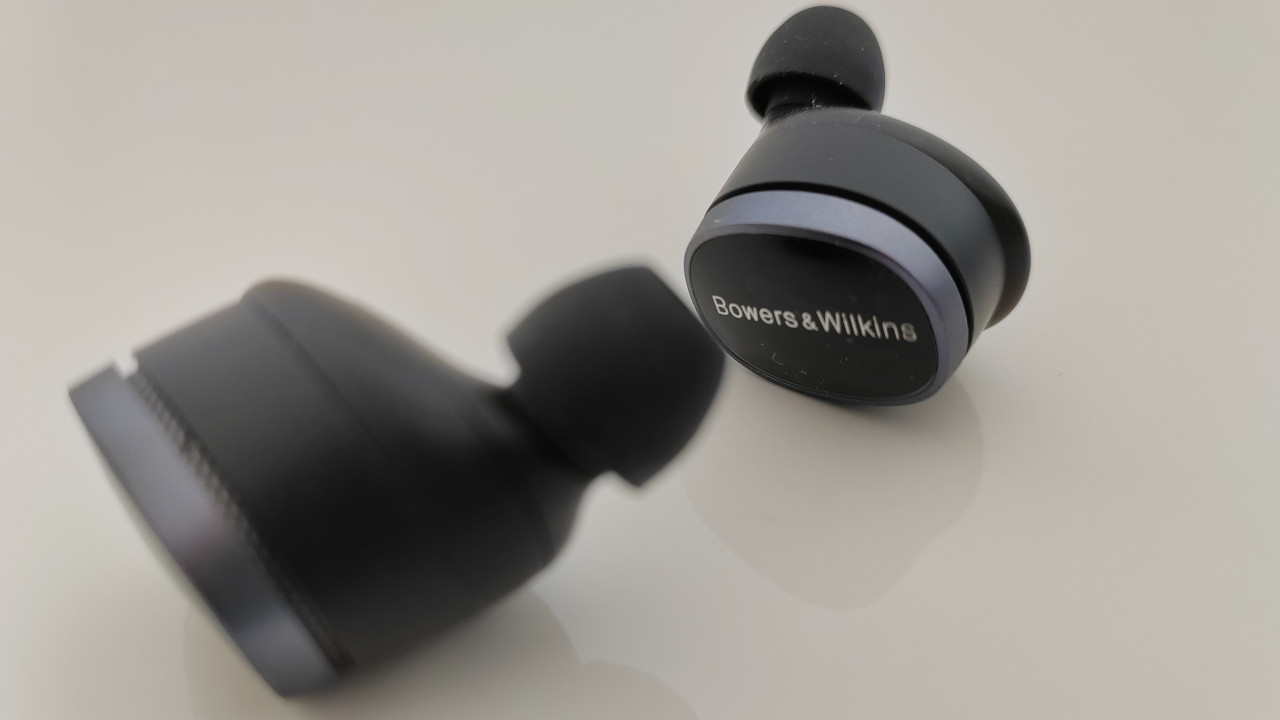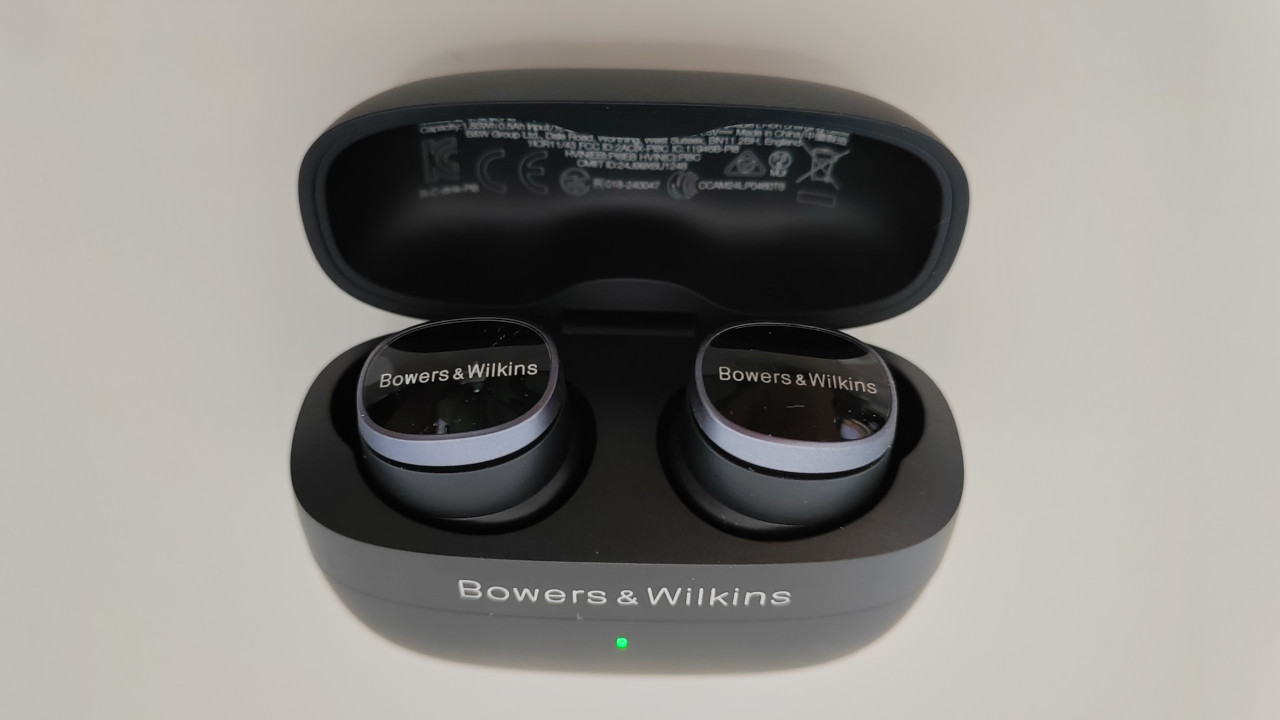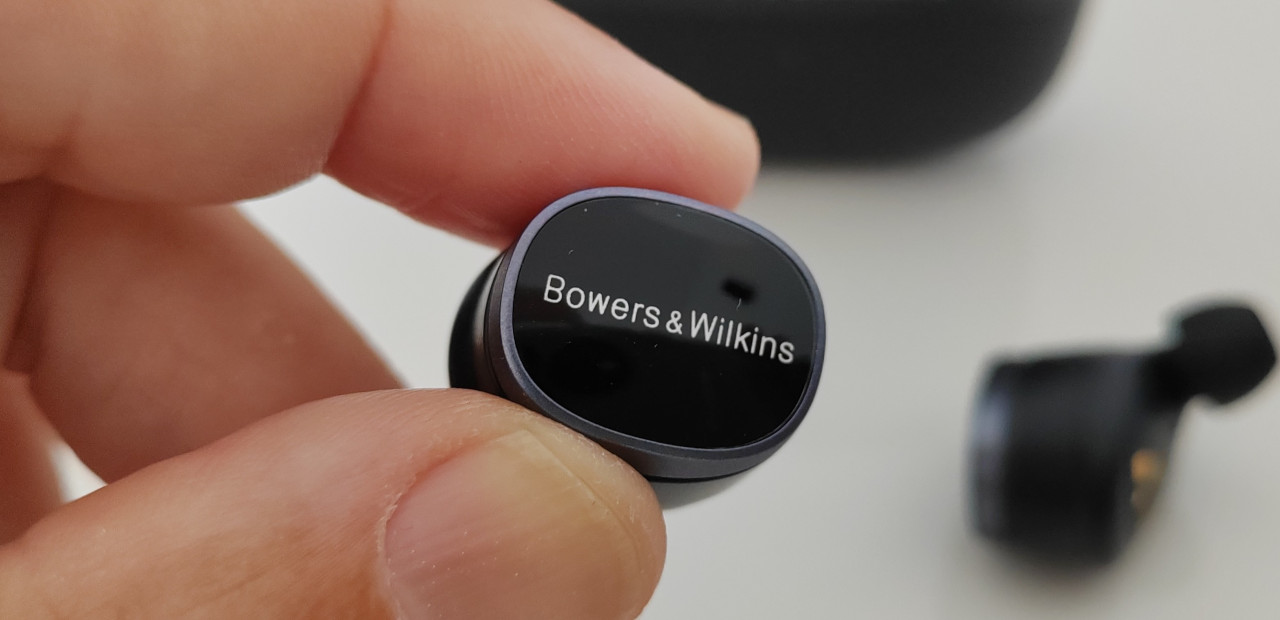With Bowers & Wilkins’ legendary 800 Series Diamond loudspeakers playing a pivotal role in recording studios such as Abbey Road, it makes sense to listen to music on headphones from the same brand.
Enter the Bowers & Wilkins Pi8, the audio firm's new flagship True Wireless earbuds. The company has gone back to the drawing board for these new noise cancelling in-ear headphones, making significant changes to both their design when compared to the previous Pi7 and componentry. The end result is a jaw-dropping audio experience.
However, they do come at a price. So are they worth it? Let’s find out…
Bowers & Wilkins Pi8: Design
With neat rounded edges and gloss finish, the Bowers & Wilkins Pi8 look suitably premium. There’s also a choice of four colour finishes: Anthracite Black, Dove White, Jade Green and Midnight Blue.
The design is snug yet comfortable, and easy to wear for prolonged periods. Unlike the Bowers & Wilkins Pi7, the seal is a hard but pliable rubber that nestles perfectly in the ear. The brand suggests this improvement in fit is worth around five decibels of noise attenuation. It also acts as something of a heat barrier, so that the earbuds don’t get overly warm when you’re 80 minutes into Iron Maiden's The Book Of Souls.
Bowers & Wilkins has also sought to upgrade usability by improving the responsiveness of the capacitive touch surface at the top of the earbud by adding more sensors. This interface can be used to toggle Noise Cancellation, for Bluetooth pairing, and playback and track navigation, as well as answering incoming calls.
There are also three additional ear tip sizes provided: XS, S and L, which should cater for all manner of lugholes. Finally, you won't have to fret if you're out and about in the rain, because the Bowers & Wilkins Pi8 are IP54-rated for protection against dust and water spray.
Bowers & Wilkins Pi8: Features

The Bowers & Wilkins Pi8 are built around Qualcomm’s Bluetooth 5.4 wireless transmission platform, which has support for aptX Adaptive up to 24-bit/96kHz, as well as aptX Lossless. It’s definitely leading edge. To help get you quickly up and running there’s Made for iPhone (MFi) support. Google Fast Pair (GFP) is due soon for Android users.
Interestingly, there's no dedicated pairing button, but you can force the Bowers & Wilkins Pi8 into Bluetooth mode by pressing and holding both earbuds for three seconds. There’s also Multipoint support.
The accompanying app features a five-band Advanced EQ function, noise cancelling toggle and touch control customisation - and you can also link and play from subscribed music streaming services.
The Active Noise Cancellation algorithm used here is basically the same as that employed by the brand’s Px8 over-ear headphones. It does the job, but it’s not as effective as that on rival earbuds and I wasn’t shielded quite as effectively when doing a noisy commute. That said, ANC does provide some cover and doesn’t interfere with the listening experience, which I assume was Bowers & Wilkins' principal concern.
The Transparency mode has also been improved to better take in ambient sound around. Sensors and microphones have been relocated to a notch that sits clear of the ear itself, thereby gaining 360 degrees of coverage.
The charging case is nice and slim and easily pops into a pocket. A colour coded LED beneath the brand logo is used to communicate.
The case is also able to retransmit audio up to 24-bit 96kHz audio from USB and 3.5mm connected music sources and the requisite cables are provided in the box. The case can convert analogue signals to digital and then transmit them in aptX Adaptive Low Latency to the buds. This means you can use the Smartcase and Pi8 buds with in-flight entertainment systems, as well as laptops, iPads and USB-C-enabled iPhones.
Battery life is around 6.5 hours with ANC in use, which can be considered pretty average. The case itself has a power reserve of 13.5 hours. You’ll likely not easily run out of juice, but if you do, a 15 minute quick charge will earn you a couple of hours of play time.
What’s missing though is support for Spatial Audio, which recently landed on the LG T90S, and any dedicated voice interaction.
Bowers & Wilkins Pi8: Sound

Sublime. Exciting. Authentic. All these adjectives can be applied to the Bowers & Wilkins Pi8. They're mighty when it comes to delivering thunderous riffs, riotous rhythms and full-throated roars and for sheer musicality, these earbuds are up there with the very best I’ve heard. The treble is as clear as crystal and the midrange as rowdy as the front row of a Bowling For Soup gig.
Significantly the Bowers & Wilkins Pi8 feature all new 12mm drive units that use the same Carbon Cone technology first heard on the brand’s PX8 over-ear headphones. A key attribute of these dynamic drivers is exceptional transparency at high frequencies.
This translates to zero vocal disintegration at volume: Slipknot’s Wait And Bleed tries hard but fails to confound those fancy Carbon Cones - and their spatial integrity is remarkable for a pair of True Wireless earbuds. Instruments can be placed exactly where you would expect them to be.
The live version of Dragonforce's Through The Fire And Flames on their 2015 album In the Line of Fire... Larger Than Live gave me chills - the audience singalong and ambiance of the venue are all perfectly presented, even as Herman Li shreds the roof off the Saitama Super Arena.
Their bass response is also surprisingly good. The Steve Aoki dance remix of My Chemical Romance's Welcome To The Black Parade (16-bit 44.1kHz) didn't lose any of its club scene intensity, and they really plunge the depths with Billie Ellish’s Bad Guy (24-bit 44.1kHz on Tidal).
I also particularly liked the way they sounded with guitars, both acoustic and mad metal riffing on WASP's Chainsaw Charlie (Murders In The New Morgue).
Bowers & Wilkins Pi8: The alternatives
Produced in collaboration with high-end UK Hi-Fi specialist Meridian Audio, the LG Tone Free T90S are excellent performers for the cash. They combine a class leading (ANC) battery life of 9 hours, with Spatial audio support. Meridian developed Headphone Spatial Processing (HSP) can also be used to enlarge the soundstage of regular two channel stereo.
If you can forgo noise cancelling, and have a more limited budget, the beefy Marshall Minor IV are well worth shortlisting. Oozing street cred, the Minors combine the amp brand’s signature-sounding 12mm dynamic drivers with a 7 hour battery life, and popular stick-style form factor.
Related buyer's guides
- Best earbuds and in-ear headphones: Get the perfect fit
- Loudest headphones: You want volume? You got it
- Best headphones for music: Get the most from your favourite sounds
- Best budget wireless headphones: Cut the cables
- Best earplugs for concerts: Get your ears gig-ready

